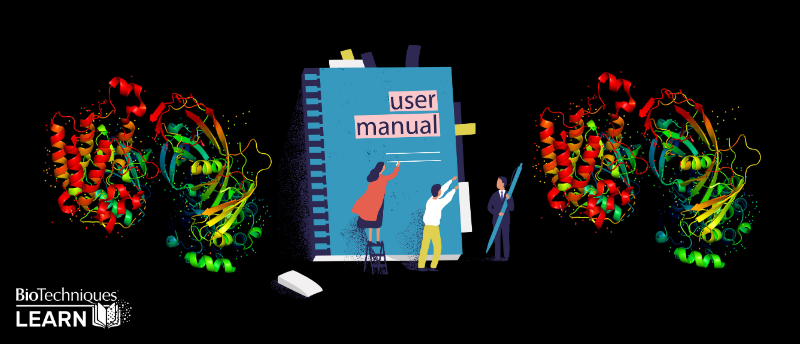How to prepare samples for proteomic analysis with Protocols.io

Protocols.io is an online platform designed for researchers to share their lab protocols and methodology as step-by-step instructions. Here, we share some of their latest protocols for preparing samples for proteomic analysis.
- Highly parallel droplet sample preparation for single-cell proteomics V.3
- A simple illustrated protocol to prepare over 1,000 multiplexed single-cell proteomics samples per day
- Alkaline-SDS cell lysis of microbes with acetone protein precipitation for proteomics sample preparation in 96-well plate format V.1
- Carrier-assisted one-pot sample preparation for targeted proteomics analysis of small numbers of human cells
- Sample preparation protocol for total proteomic analysis of mouse tissues including brain V.1
Highly parallel droplet sample preparation for single-cell proteomics V.3
This protocol from Nikolai Slavov’s research group at Northeastern University (MA, USA) outlines how to prepare single cells for analysis with mass spectrometry using nPOP, an approach that increases the throughput of single-cell proteomics by simultaneously preparing thousands of single cells in a single batch. This protocol uses CellenOne technology for liquid handling and cell sorting.
A simple illustrated protocol to prepare over 1,000 multiplexed single-cell proteomics samples per day
Benjamin Orsburn (Johns Hopkins University Medical School, MD, USA) describes a sample-preparation method for multiplexed single human cells and requires no specialized equipment or robotics. This includes steps for lysing, digesting and labeling over 1000 single human cells per day.
Alkaline-SDS cell lysis of microbes with acetone protein precipitation for proteomics sample preparation in 96-well plate format V.1
This is a high-throughput sample-preparation protocol to extract protein from gram-negative bacteria, gram-positive bacteria or non-filamentous fungi in a 96-well plate format for quantitative proteomic analysis, and was produced by Yan Chen, Jennifer Gin and Christopher Petzold at the Lawrence Berkeley National Laboratory (CA, USA).
Carrier-assisted one-pot sample preparation for targeted proteomics analysis of small numbers of human cells
Carrier-assisted one-pot sample preparation coupled with Liquid Chromatography-Selected Reaction Monitoring, or cLC-SRM, is a convenient method for multiplexed targeted proteomics analysis for a small number of human cells, including single cells, and was developed to address challenges with the processing of single cells for mass spectrometry analysis. The method includes cell sorting, cell lysis and digestion, LC-SRM analysis and data analysis.
Sample preparation protocol for total proteomic analysis of mouse tissues including brain V.1
This protocol from Dario Alessi’s group at the University of Dundee (Scotland) provides a stepwise preparation of tissue specimens derived from human or mice tissue and cell line models for mass spectrometry-based proteomics analysis. They utilize a strong detergent and high-energy sonication to ensure complete solubilization of the proteins in order to maximize proteomic coverage. The authors also explain how to perform tandem mass-tag labeling of digested proteins to multiplex up to 16 samples in a single study.





